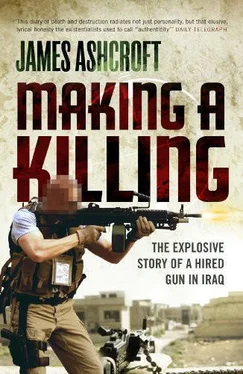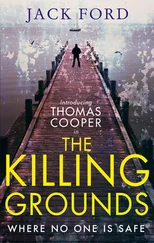The soldiers had completely ignored the spiritual element so important to people with little in their lives other than a fierce pride and a sense of devotion to their religion. The demonstrators were carrying pictures of their leaders, they were unarmed and they were demanding elections, the very aim of the Coalition. The lack of respect, the violence and the lack of effort or interest in listening to the crowd were a lethal insult. If this had been a town garrisoned by US troops, the Iraqis would have been out that same night shooting up their patrols. In a tribal area they would not have waited five minutes.
US Secretary of Defense Donald Rumsfeld’s man, Ambassador Paul Bremer, arrived in May 2003 and one of his first acts was the issuing of two orders that, in my opinion, may have had a significant impact on post-war reconstruction and may have been one of the contributory factors that took the country to the brink of civil war. He formally disbanded all existing Iraqi security forces, including the army, and also instigated a process of de-Ba’athification, which translated into the sacking of almost every senior administrator in central and local government across Iraq. This might have worked in a country in which other political parties existed, or in which it was not compulsory to be a member of the ruling clique to hold office of any kind including the administration of hospitals and universities. This was not the case in Iraq.
The Iraqi army and police had been the last visible remnants of Iraqi governmental control in the country. Now an American had ordered them gone and an American had placed American soldiers in charge. In the middle of a worsening situation Paul Bremer, by disbanding the only recognised Iraqi security infrastructure, had succeeded in two things at the stroke of a pen. Firstly, establishing in the minds of the Iraqis that America was not a liberator but a conqueror, and secondly, putting nearly a million armed men on the streets with no employment options except organised crime or to join the insurgency.
This was an ill-conceived and fatal miscalculation. I doubted that there was a single military officer in the Coalition Forces who was not appalled by Bremer’s decision. There was undoubtedly good reasoning behind it◦– to ensure that the human rights abuses and corruption committed against the Iraqi people by the Ba’athists under Saddam’s regime could not continue◦– but to me, it was still a fundamentally flawed policy because there was nothing to replace those institutions. Those officers understood the ramifications immediately because they were out on the streets. With that start, things would go from bad to worse in the first few weeks of the occupation. I have no idea what the three men responsible for planning the post-war occupation, General Tommy Franks, US Deputy Secretary of Defense Paul Wolfowitz and Donald Rumsfeld came up with, but having seen an immaculately planned and successful invasion turn into the resulting chaos both in the CPA and on the streets, I took this to be the result of a poorly thought-out occupation strategy. Over a dozen US and British Colonels that I met in the CPA confirmed that no briefings had been given out regarding Phase IV, the occupation.
With combat missions completed, American units dug in and with few exceptions watched the looting around them with no orders to stop it. The crime rate spiralled out of control as gangs roamed with impunity, killing, raping and looting. The Arabic criminal tradition of kidnap for ransom was flourishing and ordinary Iraqis were afraid to walk the streets. Petty grudges dating back for years were settled every night with AK-47s.
Every single government building, not just palaces and villas, but schools and hospitals, was looted down to the bare concrete with furnishings, toilets, window panes, wiring, pipes and even the doors being taken. Shops and businesses suffered as well as government properties. Only a few survived, guarded by courageous owners with strong sons and an armoury of AKs. When I drove around Baghdad it was a poster advertisement for American precision bombing, with bombed government headquarters turned into rubble next to untouched apartment blocks. But the Iraqis themselves, liberated from Saddam, had done far more damage to their own city than the war itself. Shocking, largely unreported and true.
The American administration, CPA officials and local CF commanders were horrified by the cost of the destruction and realised that a permanent blow had been struck at the reconstruction budget. But they totally missed the far more insidious and spiritual message they had sent out which would cause far more damage in the long run.
For the vast majority of Iraqis, this was their introduction to ‘freedom’ and ‘democracy’. Kidnap. Rape. Murder. Sewage running in the streets. No water and no electricity. Hospitals and schools burned. Rampant criminal gangs and terror. The only authority was that taken by criminals, the most ruthless and violent gaining the most power. The one exception was in the Shi’ite districts where religious leaders and Shia militias took over their own neighbourhoods, imposing not just order but strict Islamic laws. Once again women were forced back indoors and under the headscarf. Allowing the Shia to achieve armed control and increased influence across the south and centre of the country worried many Kurds and terrified Sunnis. It would take time, but I believed that the seeds of civil war had been sown by Paul Bremer in the first weeks of his tenure.
This was also the Iraqis’ introduction first-hand to America and Americans. The initial message that they took on board was one of incompetence and, both ironically and more importantly, one of weakness. It is impossible to over-emphasise the encouragement this gave to any Iraqi considering joining the insurgents. Saddam may have been a brutal tyrant but he had kept order.
To further illustrate America’s impotence and incompetence in the eyes of the Iraqis, in August 2003 a warrant was issued for the arrest of Moqtada al-Sadr, leader of the Mahdi Army, a dangerous Shia militia with support all over the country, yet he was still moving around with impunity in January 2004. A few months later he would launch a country-wide revolt that would bring the Coalition almost to its knees. He would only be brought to the bargaining table by Coalition Forces having to co-operate with Al Dawa and the SCIRI, two other major Shia militias. Moqtada al-Sadr was never arrested and would later be invited to join the Iraqi Governing Council.
Replying to complaints about anarchy and looting, Donald Rumsfeld on 11 April 2003 uttered the immortal line that ‘Free people are free to make mistakes and commit crimes and do bad things.’ He got a lot of flak for that comment, but however irresponsible, arrogant and fatuous his remark, he was telling the truth. And it seemed the Iraqis were in complete agreement with him.
The Pentagon’s refusal to allow CF Commanding Officer General Tommy Franks any more men severely hampered not just military operations but the Coalition Provisional Authority in its attempts to rebuild the country. In just a few weeks after the iconic toppling of the Saddam statue on 9 April 2003, Baghdad had become so dangerous that CPA officials were simply unable to leave the Green Zone to meet with Iraqi counterparts, where any remained after de-Ba’athification, or Iraqi subcontractors once work had been commissioned. The Military Escort Service, or ‘Steel Dragon’, operating from the ‘Wolfpack’ car park opposite the palace, was always fully booked. Higher priority bookings would bump civilian administrators off the list and some never managed to leave the CPA at all.
Coalition Forces mounted operations against insurgents where they could, but with such low manning levels the priority was on ‘force protection’, the military term for self-defence, rather than implementing a full peacekeeping strategy, which still seemed not to exist since no coherent civil order missions were being co-ordinated from the CPA.
Читать дальше












